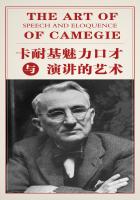We'll never see the day, Nancy--never in the world---never, never, never, child. We've got to drag along, drag along, and eat crusts in toil and poverty, all hopeless and forlorn--but they'll ride in coaches, Nancy!
They'll live like the princes of the earth; they'll be courted and worshiped; their names will be known from ocean to ocean! Ah, well-a-day! Will they ever come back here, on the railroad and the steamboat, and say, 'This one little spot shall not be touched--this hovel shall be sacred--for here our father and our mother suffered for us, thought for us, laid the foundations of our future as solid as the hills!'"
"You are a great, good, noble soul, Si Hawkins, and I am an honored woman to be the wife of such a man"--and the tears stood in her eyes when she said it. "We will go to Missouri. You are out of your place, here, among these groping dumb creatures. We will find a higher place, where you can walk with your own kind, and be understood when you speak--not stared at as if you were talking some foreign tongue. I would go anywhere, anywhere in the wide world with you I would rather my body would starve and die than your mind should hunger and wither away in this lonely land."
"Spoken like yourself, my child! But we'll not starve, Nancy. Far from it. I have a letter from Beriah Sellers--just came this day. A letter that--I'll read you a line from it!"
He flew out of the room. A shadow blurred the sunlight in Nancy's face--there was uneasiness in it, and disappointment. A procession of disturbing thoughts began to troop through her mind. Saying nothing aloud, she sat with her hands in her lap; now and then she clasped them, then unclasped them, then tapped the ends of the fingers together;sighed, nodded, smiled--occasionally paused, shook her head. This pantomime was the elocutionary expression of an unspoken soliloquy which had something of this shape:
"I was afraid of it--was afraid of it. Trying to make our fortune in Virginia, Beriah Sellers nearly ruined us and we had to settle in Kentucky and start over again. Trying to make our fortune in Kentucky he crippled us again and we had to move here. Trying to make our fortune here, he brought us clear down to the ground, nearly. He's an honest soul, and means the very best in the world, but I'm afraid, I'm afraid he's too flighty. He has splendid ideas, and he'll divide his chances with his friends with a free hand, the good generous soul, but something does seem to always interfere and spoil everything. I never did think he was right well balanced. But I don't blame my husband, for I do think that when that man gets his head full of a new notion, he can out-talk a machine. He'll make anybody believe in that notion that'll listen to him ten minutes--why I do believe he would make a deaf and dumb man believe in it and get beside himself, if you only set him where he could see his eyes tally and watch his hands explain. What a head he has got! When he got up that idea there in Virginia of buying up whole loads of negroes in Delaware and Virginia and Tennessee, very quiet, having papers drawn to have them delivered at a place in Alabama and take them and pay for them, away yonder at a certain time, and then in the meantime get a law made stopping everybody from selling negroes to the south after a certain day --it was somehow that way--mercy how the man would have made money!















